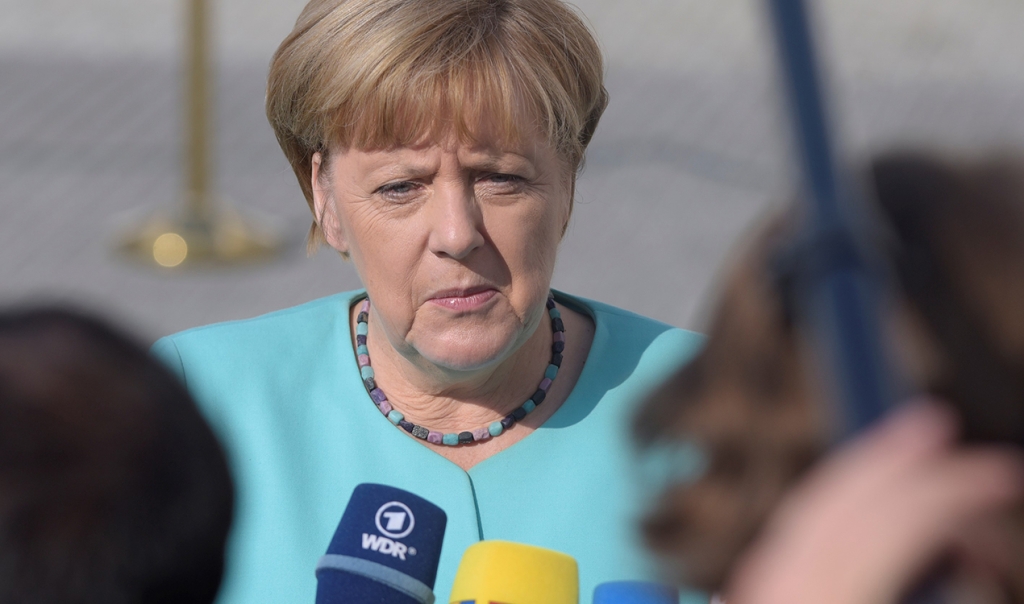-
Tips for becoming a good boxer - November 6, 2020
-
7 expert tips for making your hens night a memorable one - November 6, 2020
-
5 reasons to host your Christmas party on a cruise boat - November 6, 2020
-
What to do when you’re charged with a crime - November 6, 2020
-
Should you get one or multiple dogs? Here’s all you need to know - November 3, 2020
-
A Guide: How to Build Your Very Own Magic Mirror - February 14, 2019
-
Our Top Inspirational Baseball Stars - November 24, 2018
-
Five Tech Tools That Will Help You Turn Your Blog into a Business - November 24, 2018
-
How to Indulge on Vacation without Expanding Your Waist - November 9, 2018
-
5 Strategies for Businesses to Appeal to Today’s Increasingly Mobile-Crazed Customers - November 9, 2018
Britain to veto establishment of an European Union army
Amid growing calls for more details on the Government’s Brexit strategy, Downing Street on Saturday poured cold water on claims Mrs May told one of Brussels’ most senior figures that she wanted to trigger the formal process to pull Britain out of the European Union early next year.
Advertisement
British Prime Minister Theresa May has signaled that she could be ready to launch formal Brexit negotiations in January or February next year, European Council President Donald Tusk said on Friday, citing a recent talk with May.
Speaking at a summit in Bratislava, Mr Tusk said Mrs May had laid out that timeframe during a recent conversation.
But he has also stressed that the UK Government is unlikely to reveal much about its negotiating strategy and plans in public before triggering Article 50; the formal process of leaving the EU.
Formal negotiations over the withdrawal can not begin until the United Kingdom triggers Article 50 of the Lisbon Treaty, the formal mechanism for leaving the union.
“That is not going to happen”, he said.
During the Bratislava summit, the 27 remaining members states unveiled a six-month “road map” of measures created to restore public confidence in the EU. Its government has pledged to execute Brexit following a vote to leave the European Union that was driven in part by a desire to curb immigration.
European Commission chief Jean-Claude Juncker this week proposed an EU defence headquarters and a common defence force, both ideas that Britain had previously nixed because they might overlap with North Atlantic Treaty Organisation.
Sir Michael told The Times that he was “concerned about unnecessarily duplicating what we already have in Nato”.
The peer, who is a member of the United Kingdom parliamentary delegation to the Nato Assembly, said: ‘Even as a fervent European, I regard the creation of a European army as a deeply damaging, long-term threat to Nato.
‘The creation of a European army will only encourage isolationists in the United States to argue that Europe should be responsible for its own defence.
The European commission and parliament, in addition to the 27 remaining member states who must ratify a future Brexit trade deal, have repeatedly made clear that enhanced access to the single market will not be on offer unless Britain accepts free movement.
“France and Germany will continue to work so that we can deliver concrete measures”, Hollande said.
In a stark reminder of the challenge Britain faces at the negotiating table, Slovakia prime minister Robert Fico said Hungary, Poland, the Czech Republic and Slovakia – known as the Visegrad, or V4 group – would not hesitate to block any future trade accord that threatened the key European Union principle of free movement of workers.
Advertisement
Austrian Chancellor Christian Kern told CNBC as he arrived at the summit that it was “time to achieve some progress on the real issues (facing Europe) which are migration, security and social welfare and I’m quite optimistic that we’ll have good progress today”, he said.




























